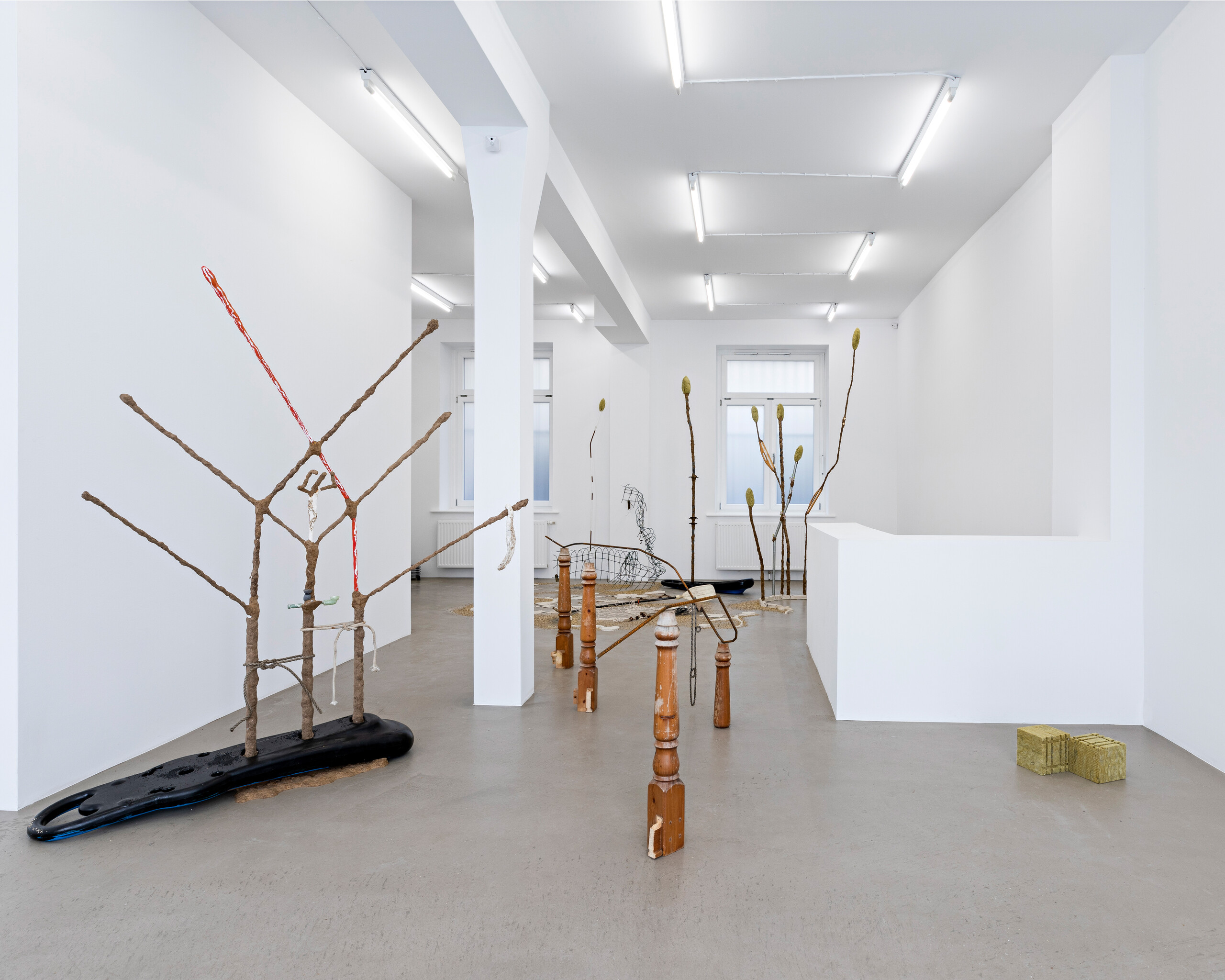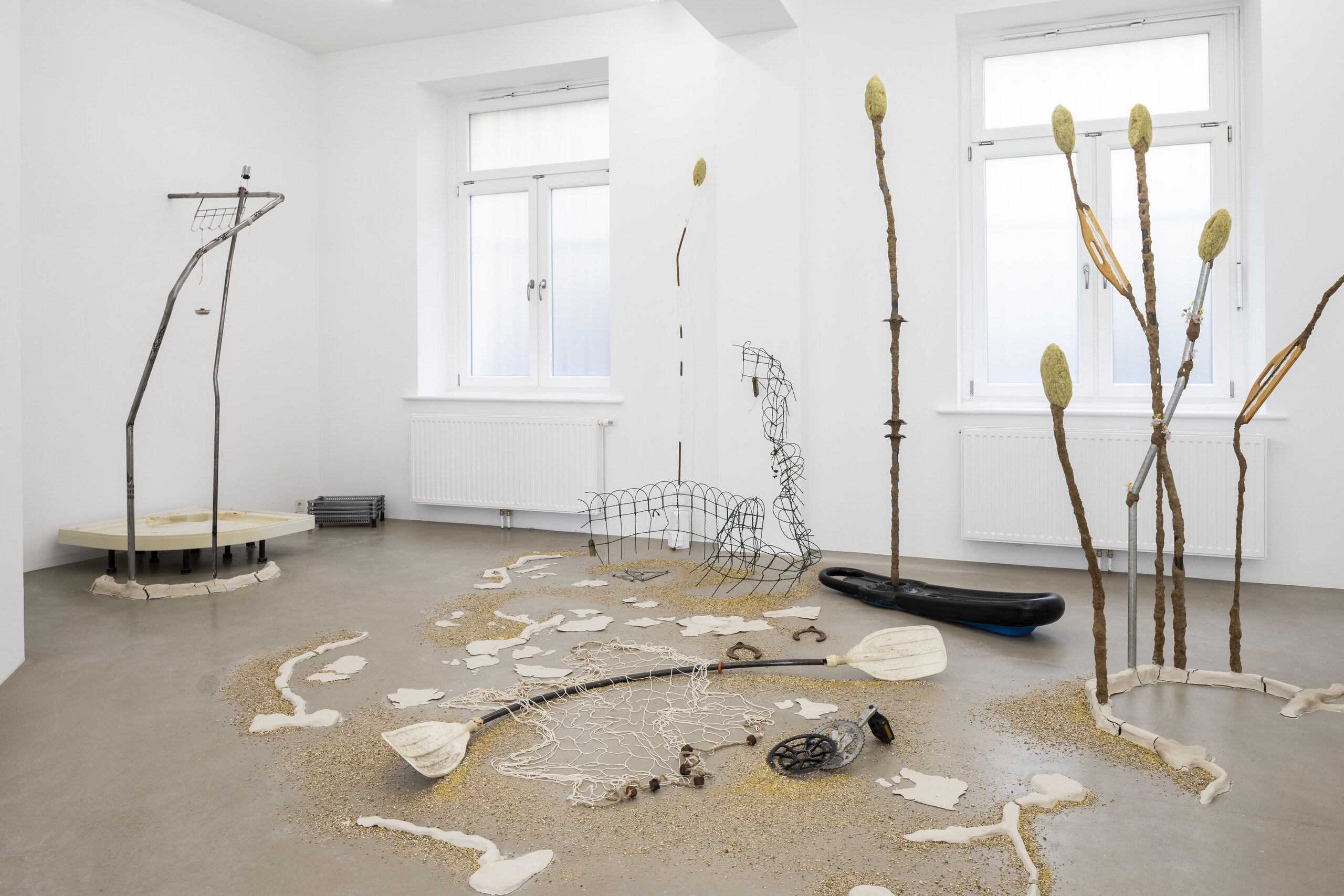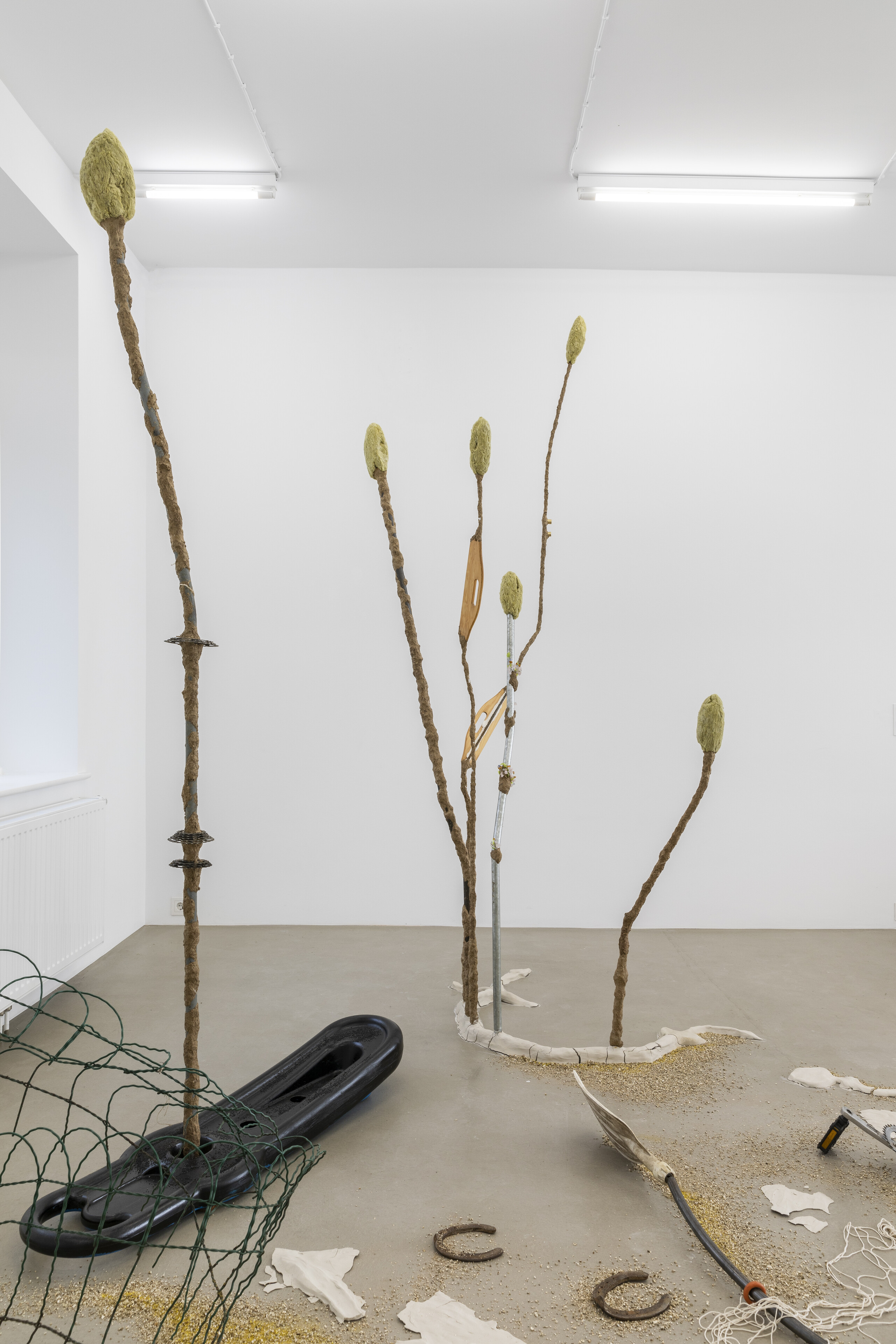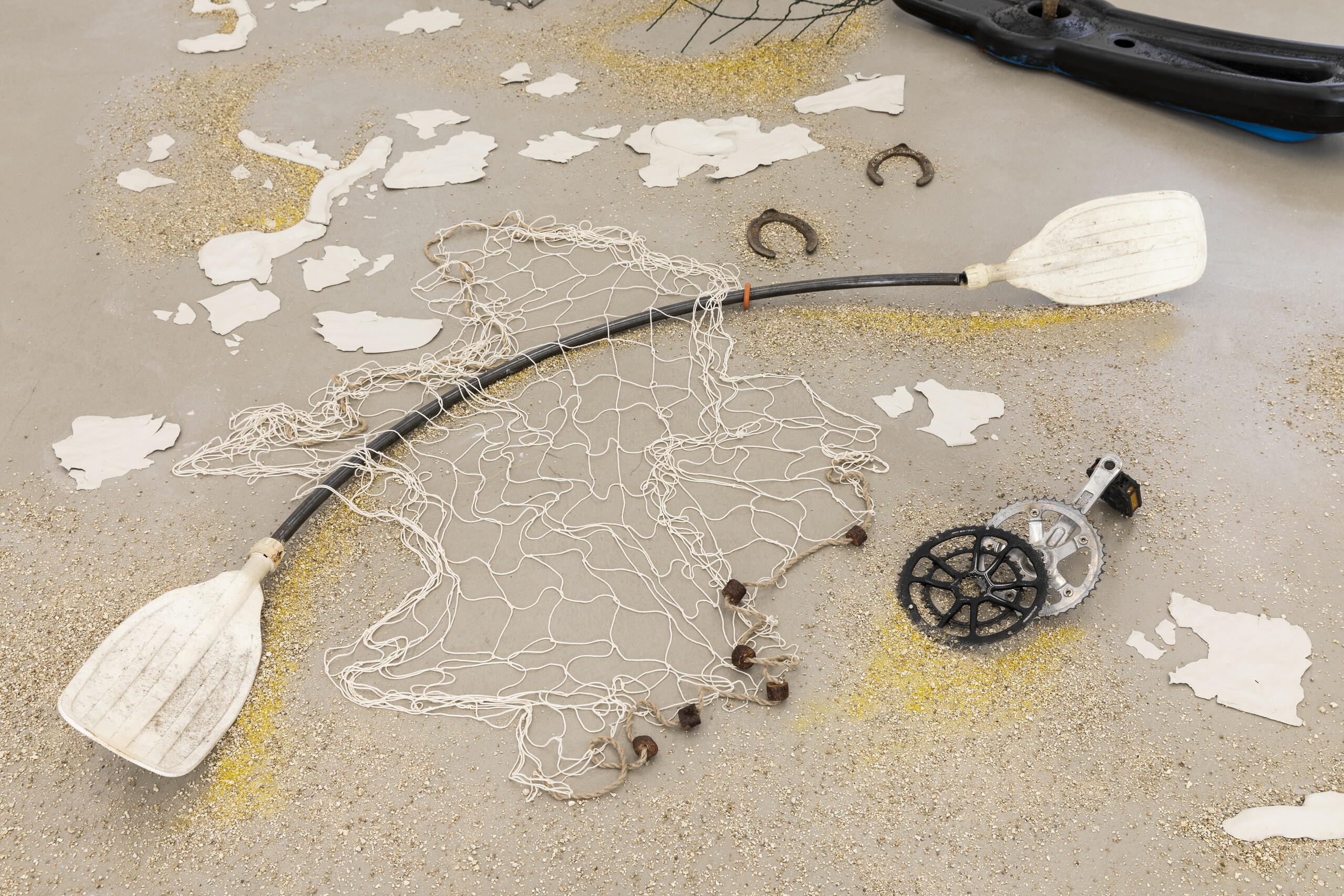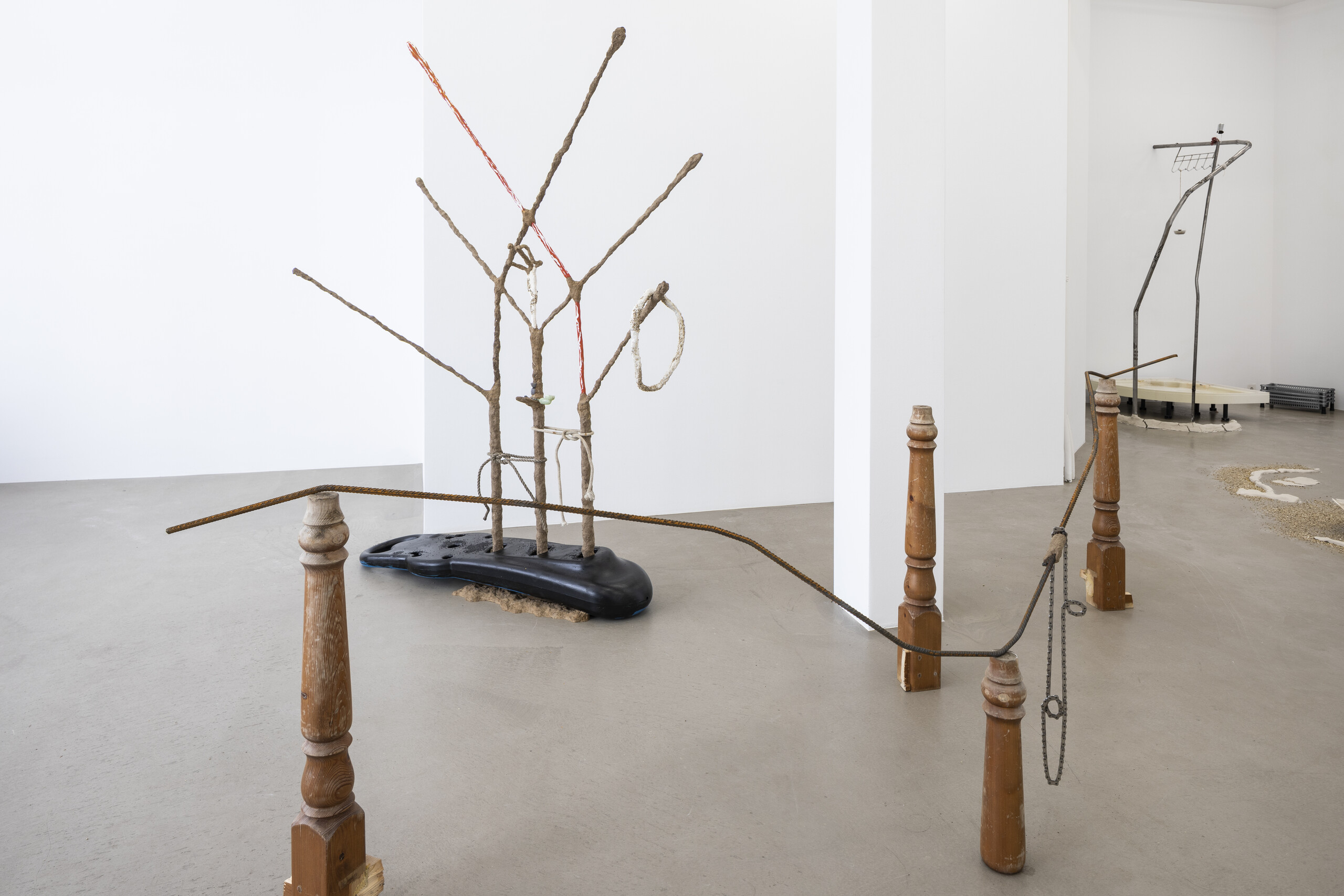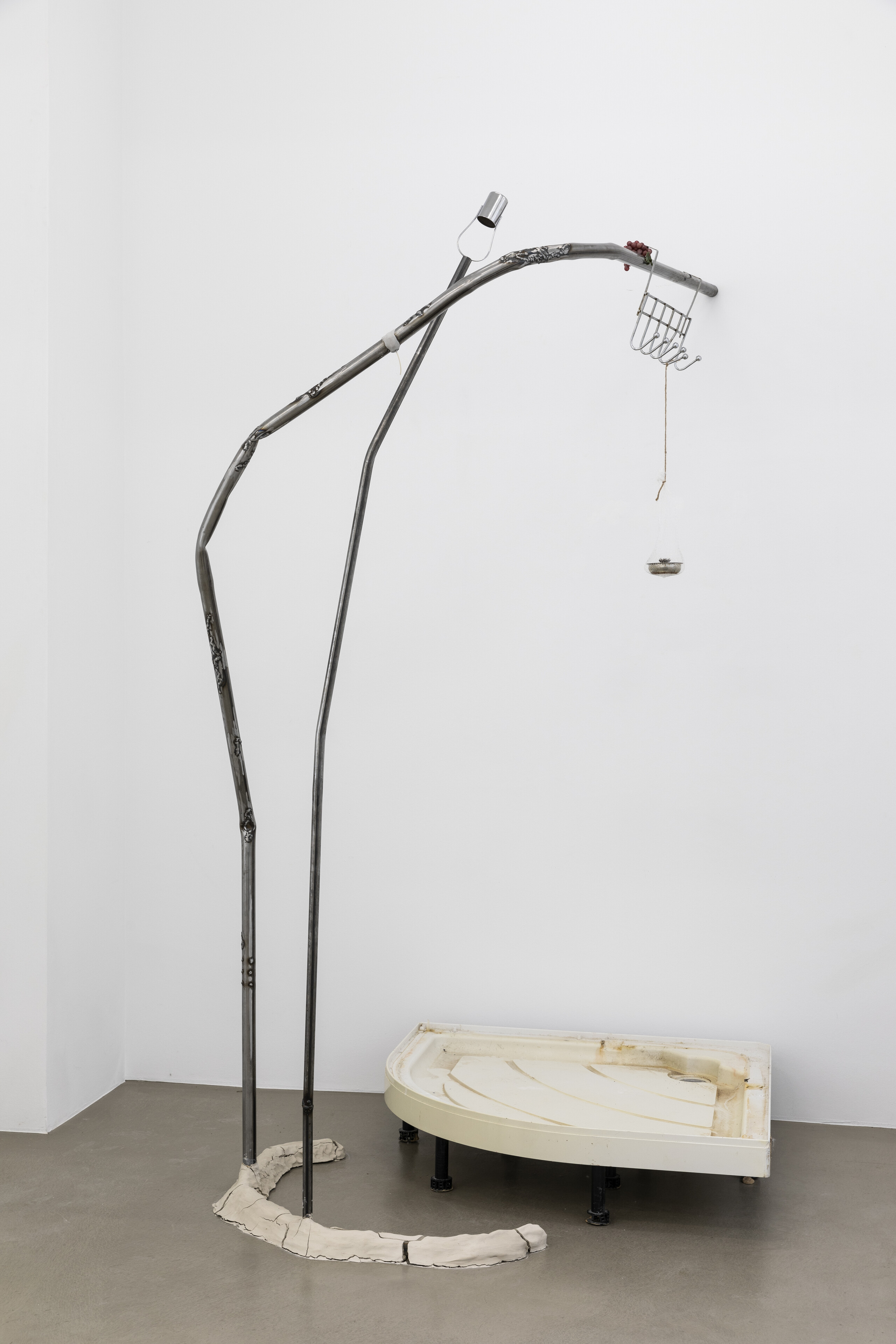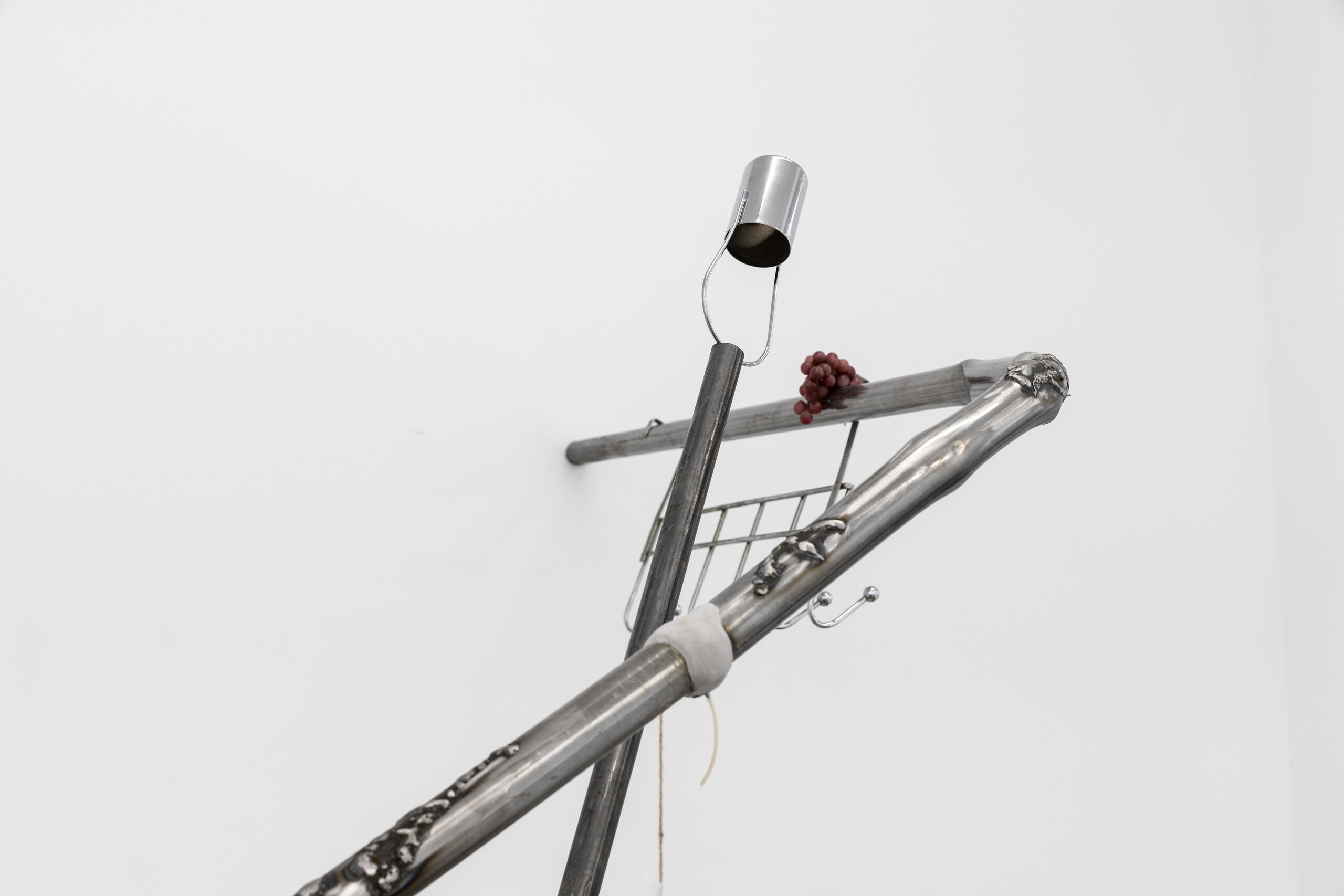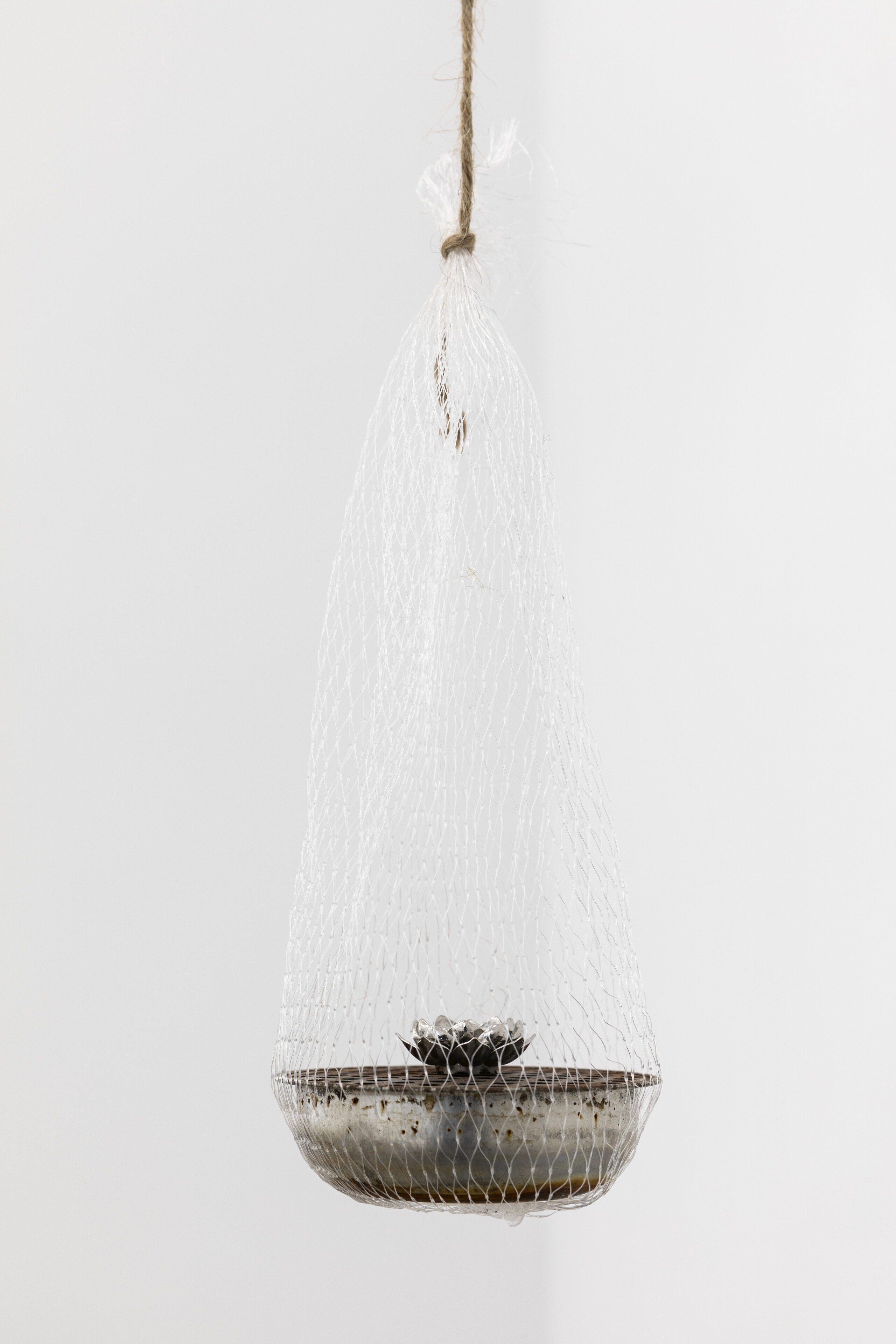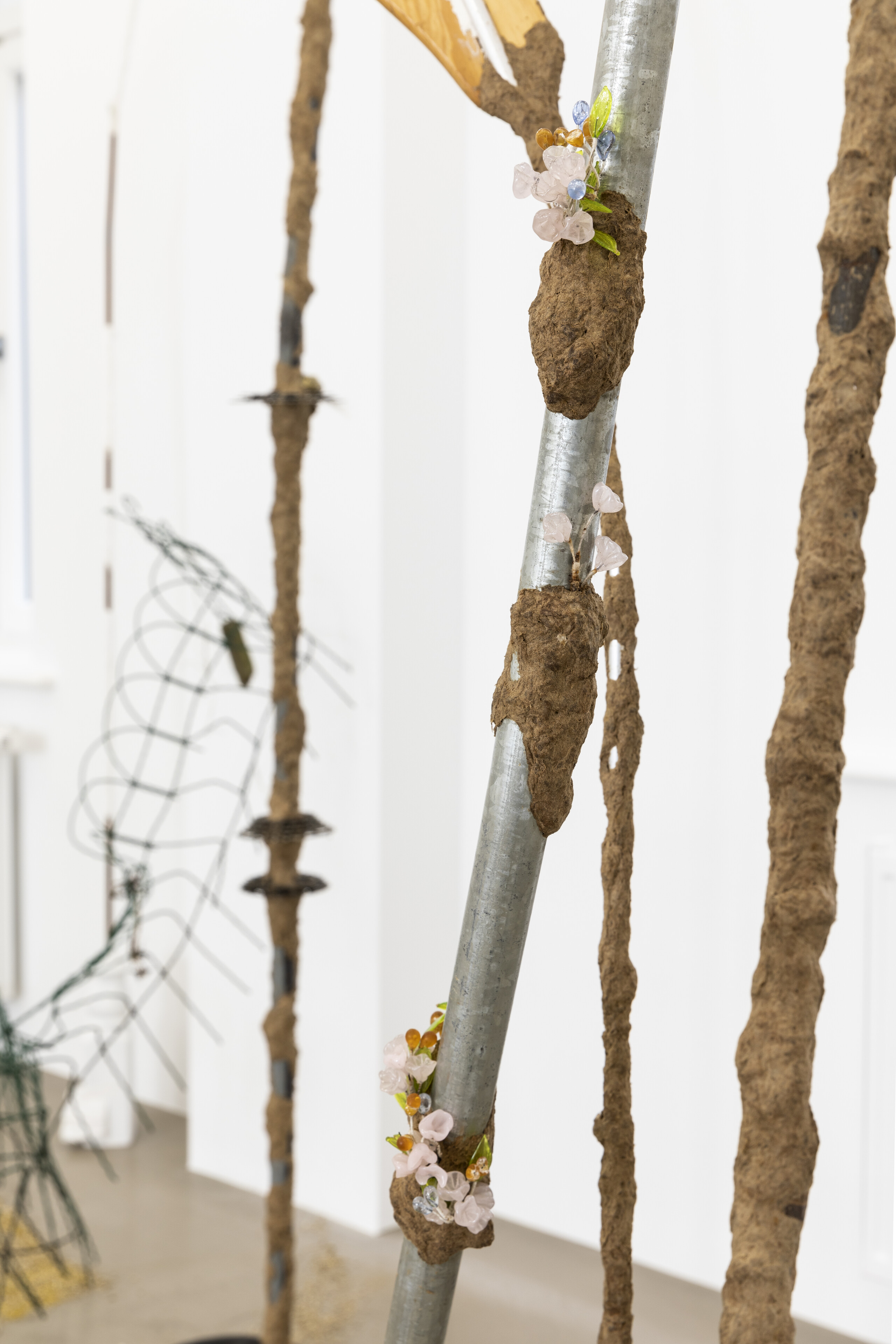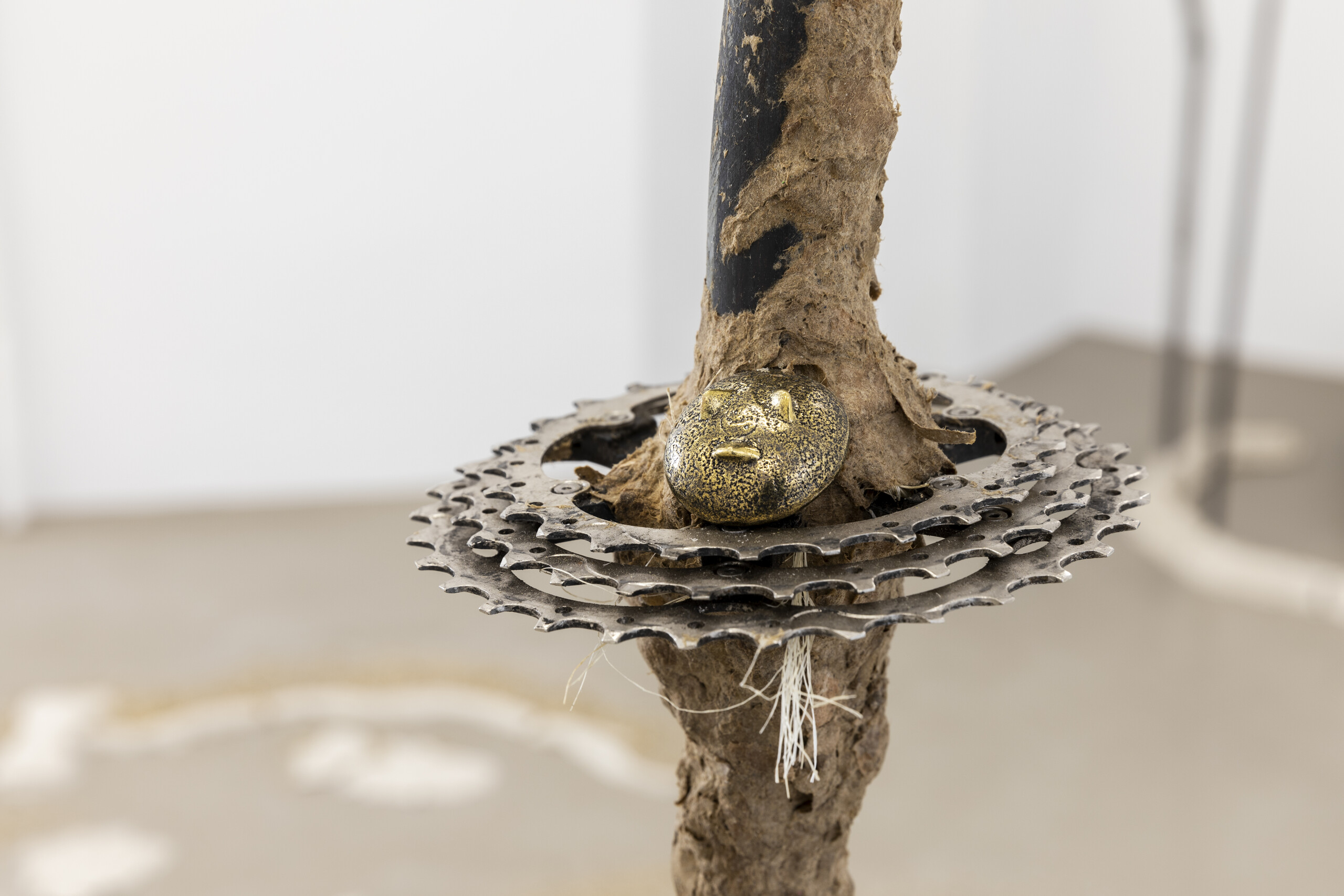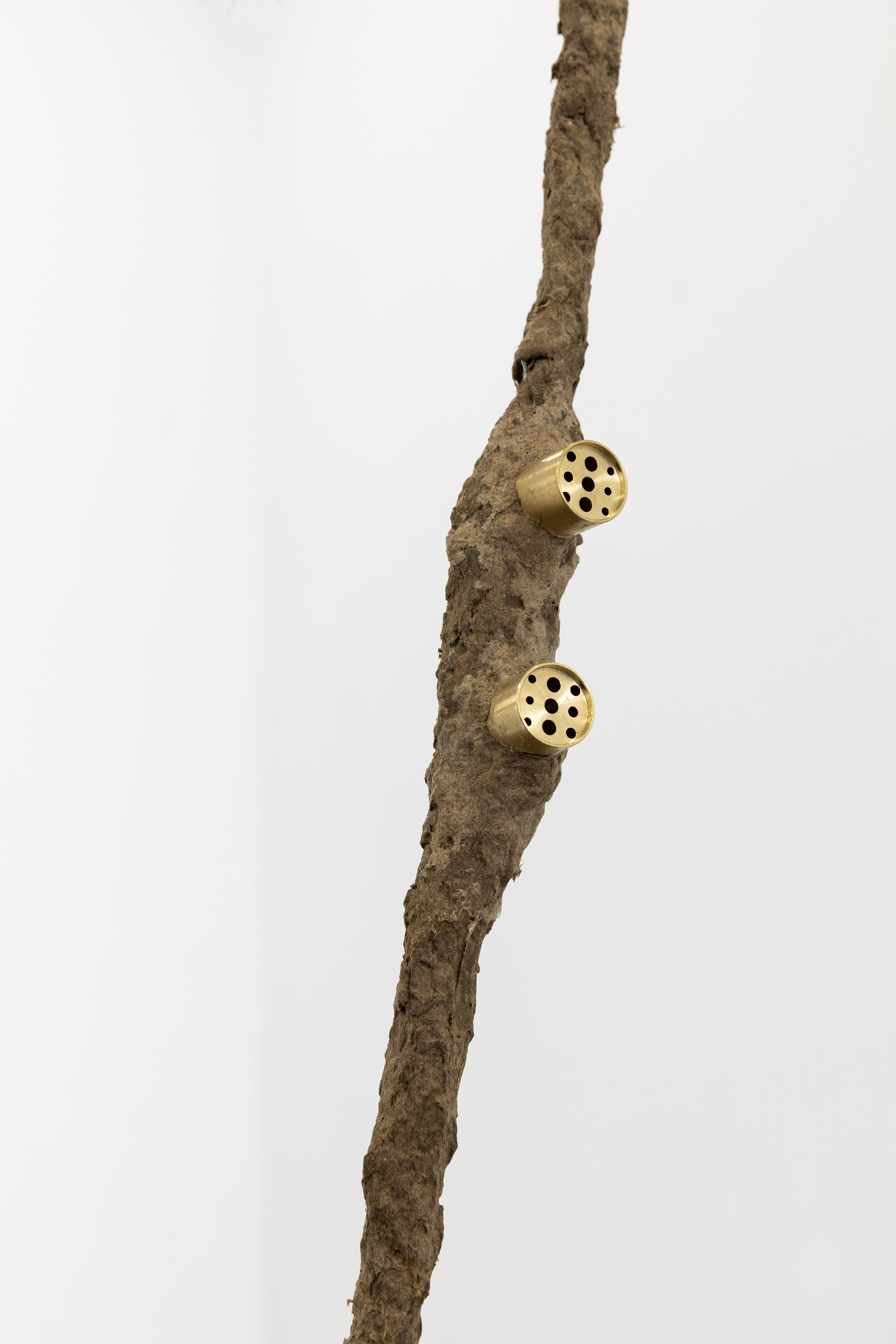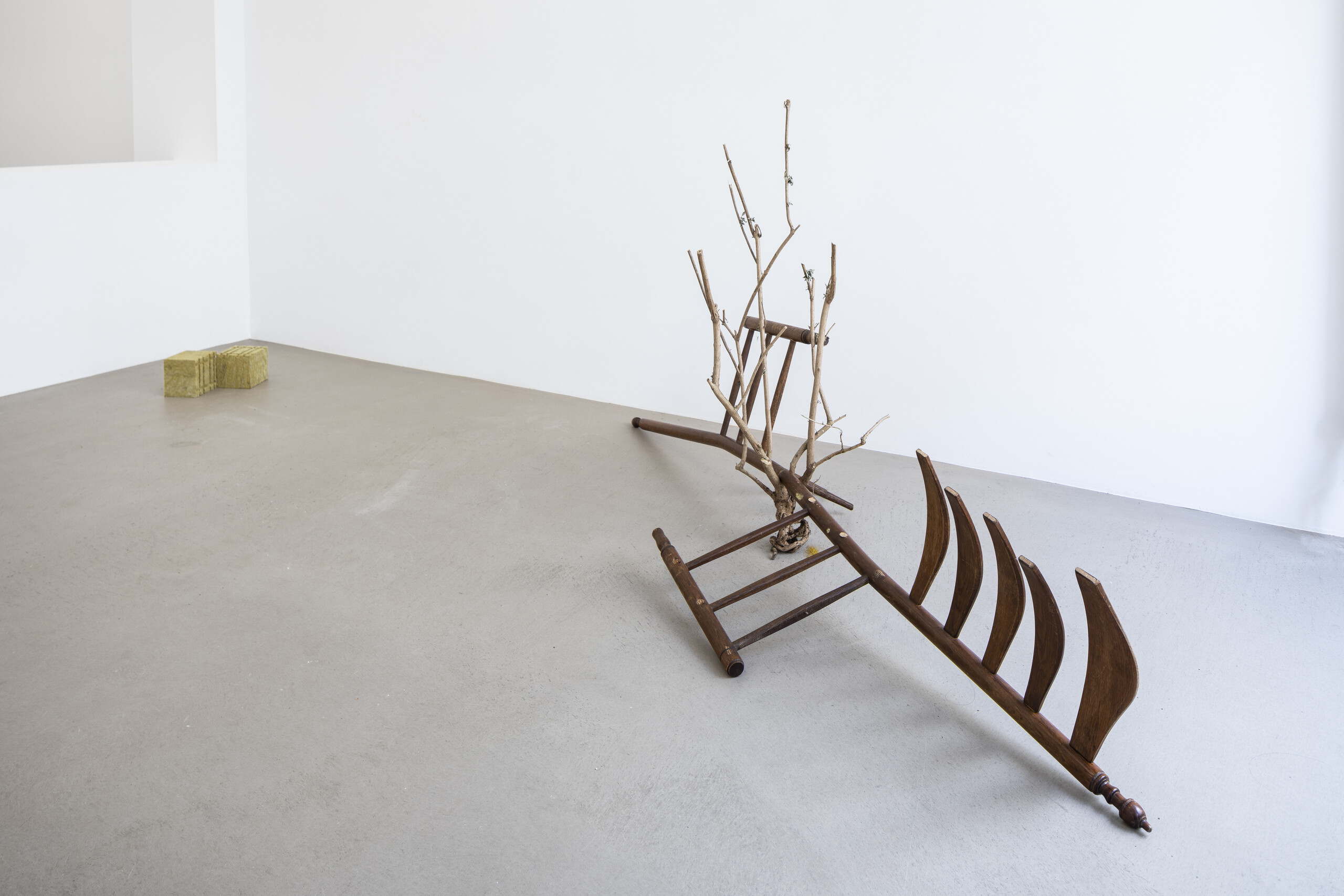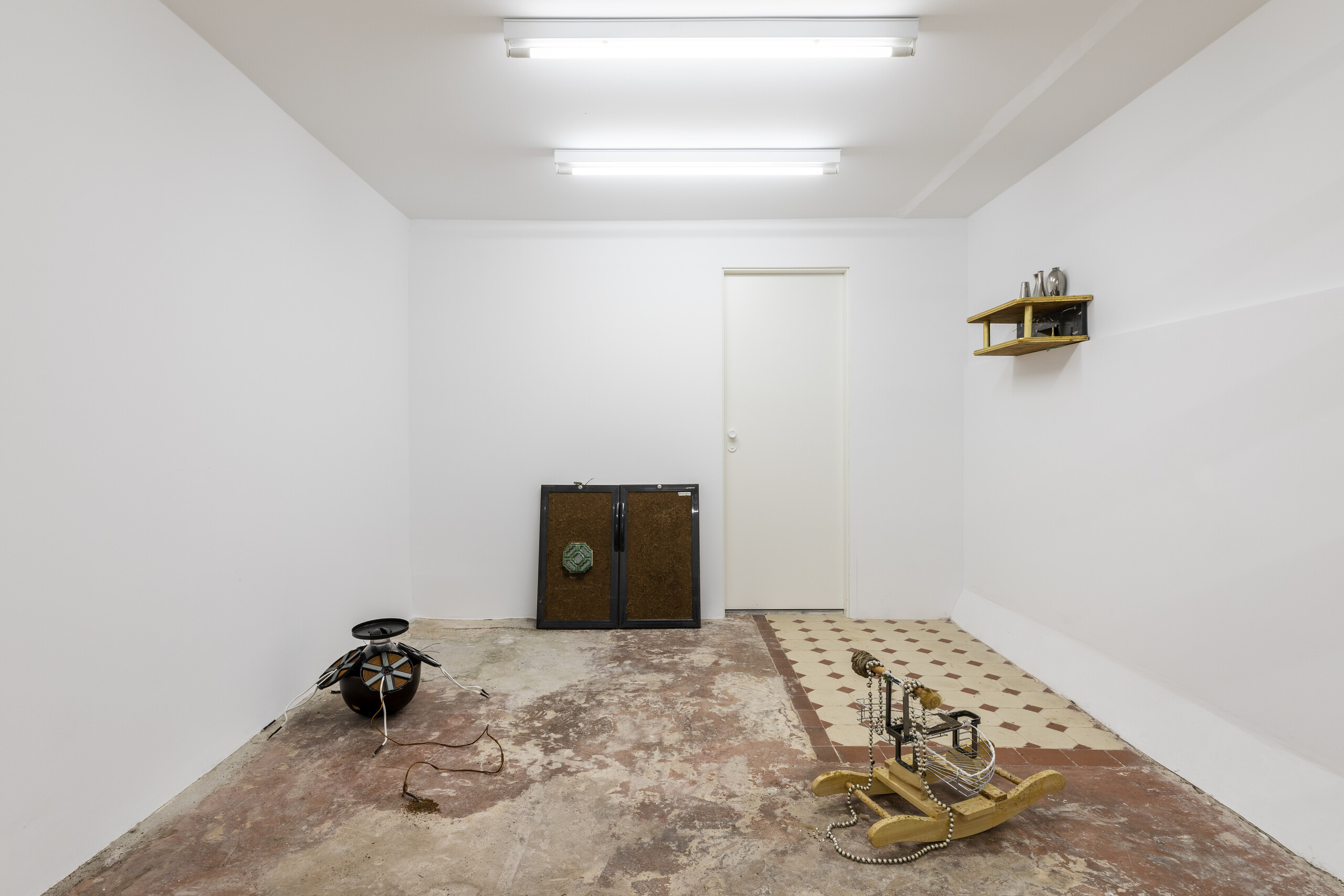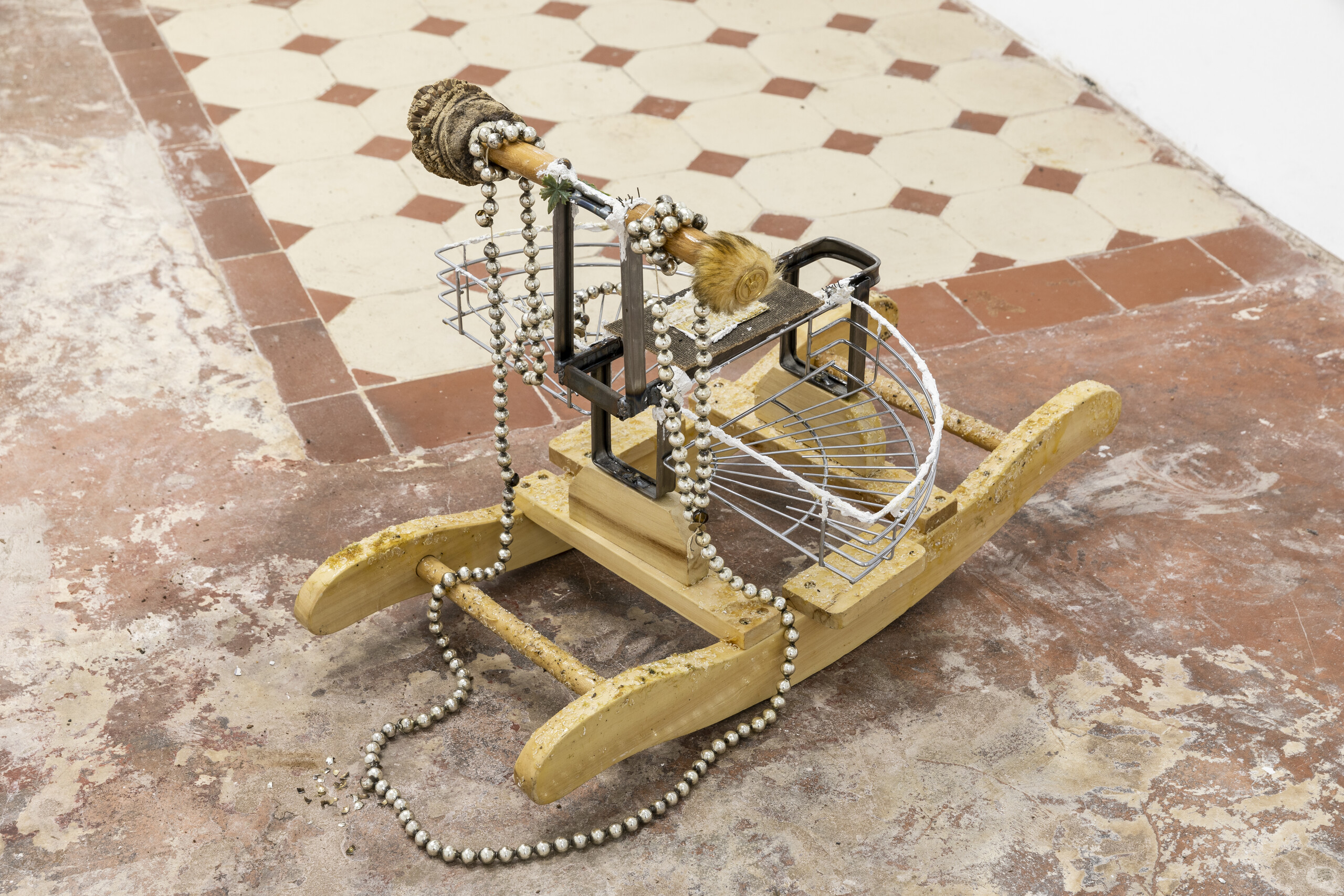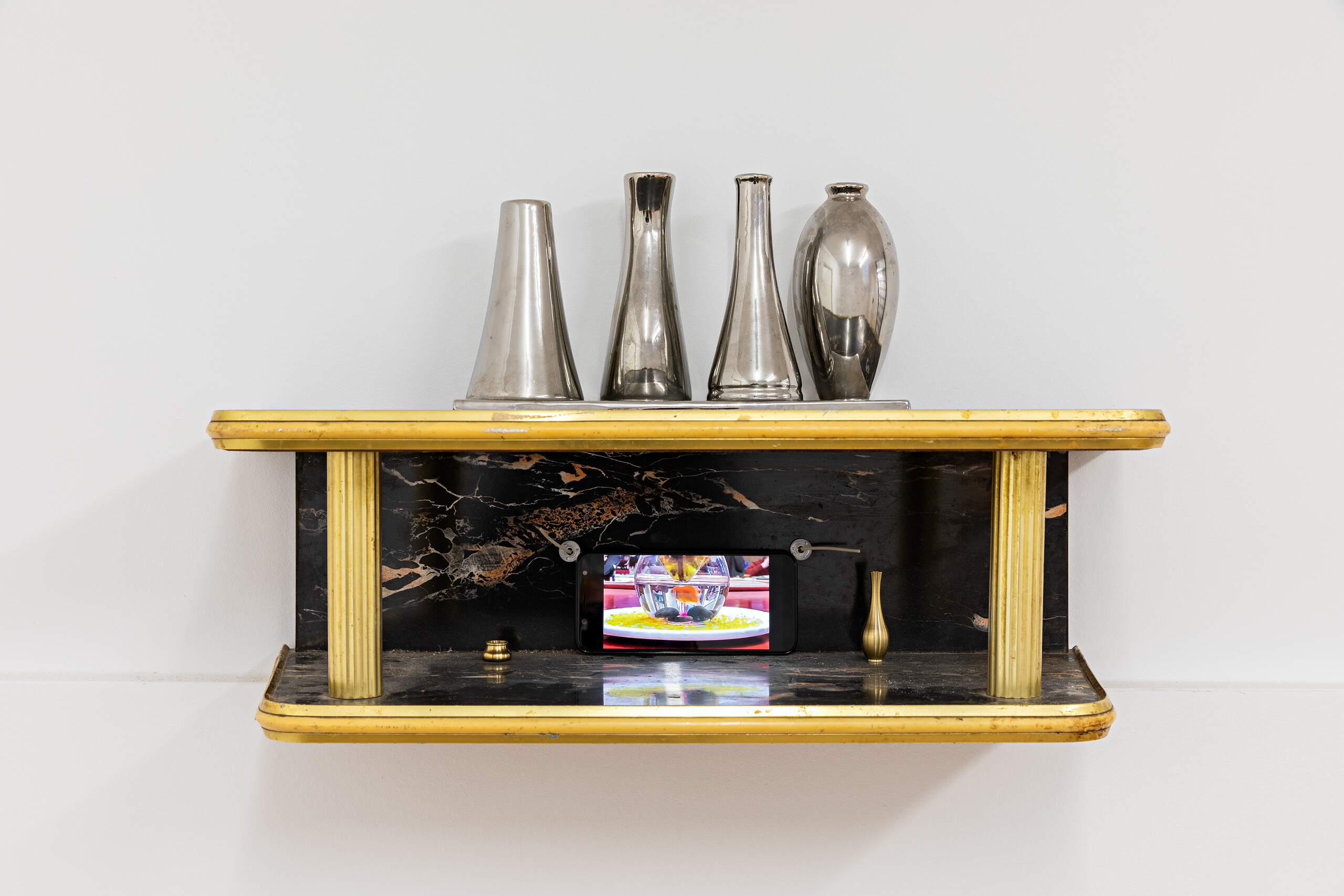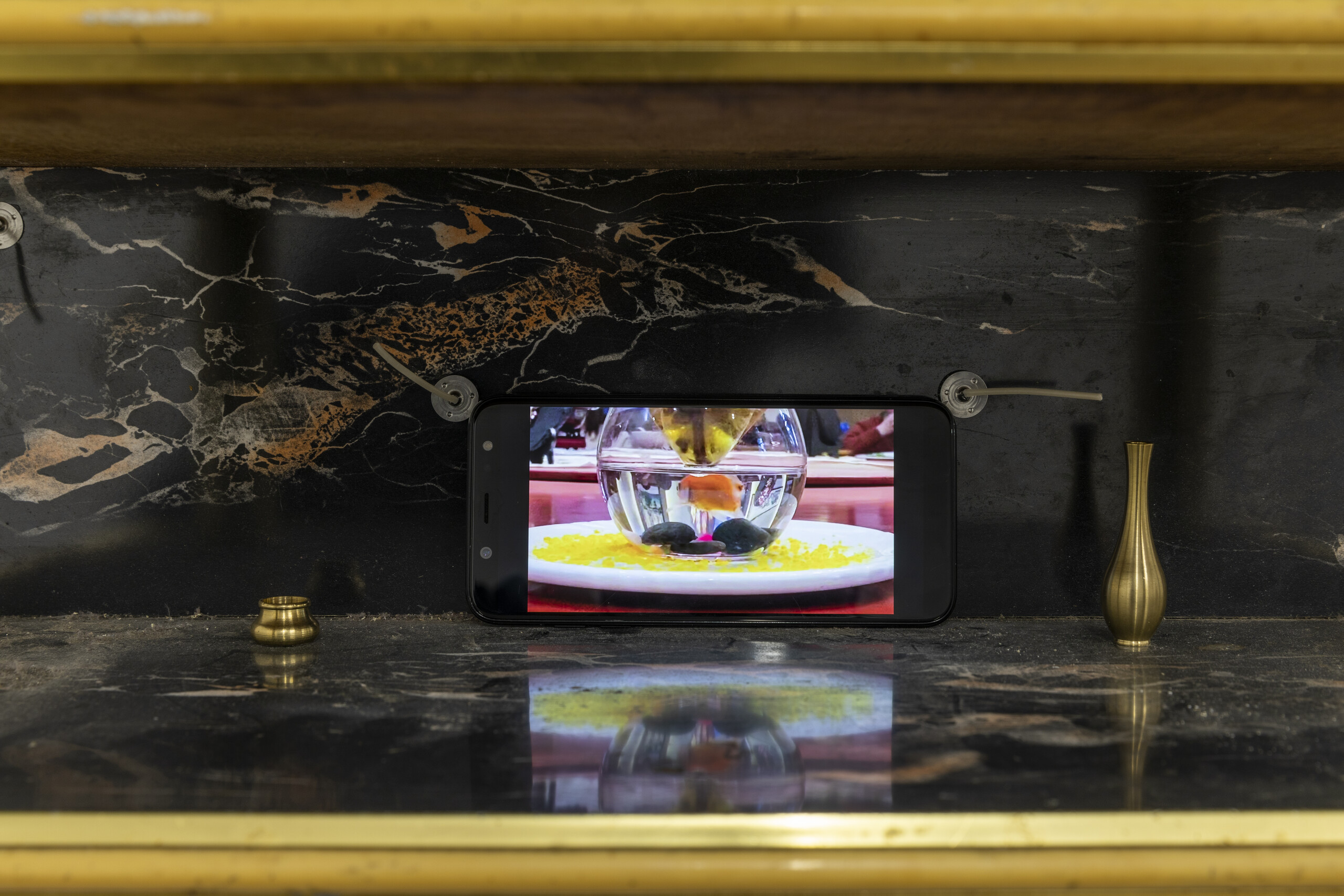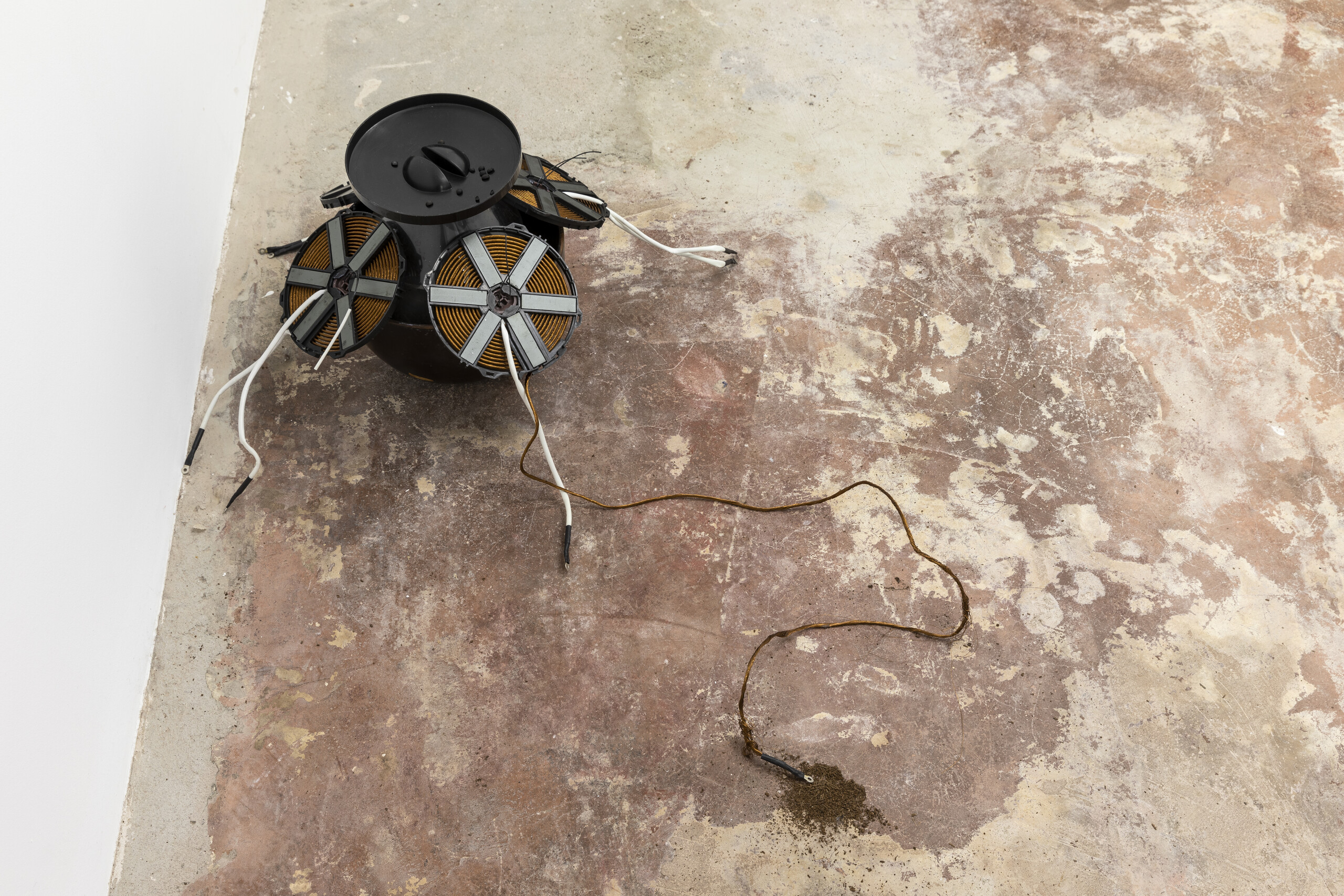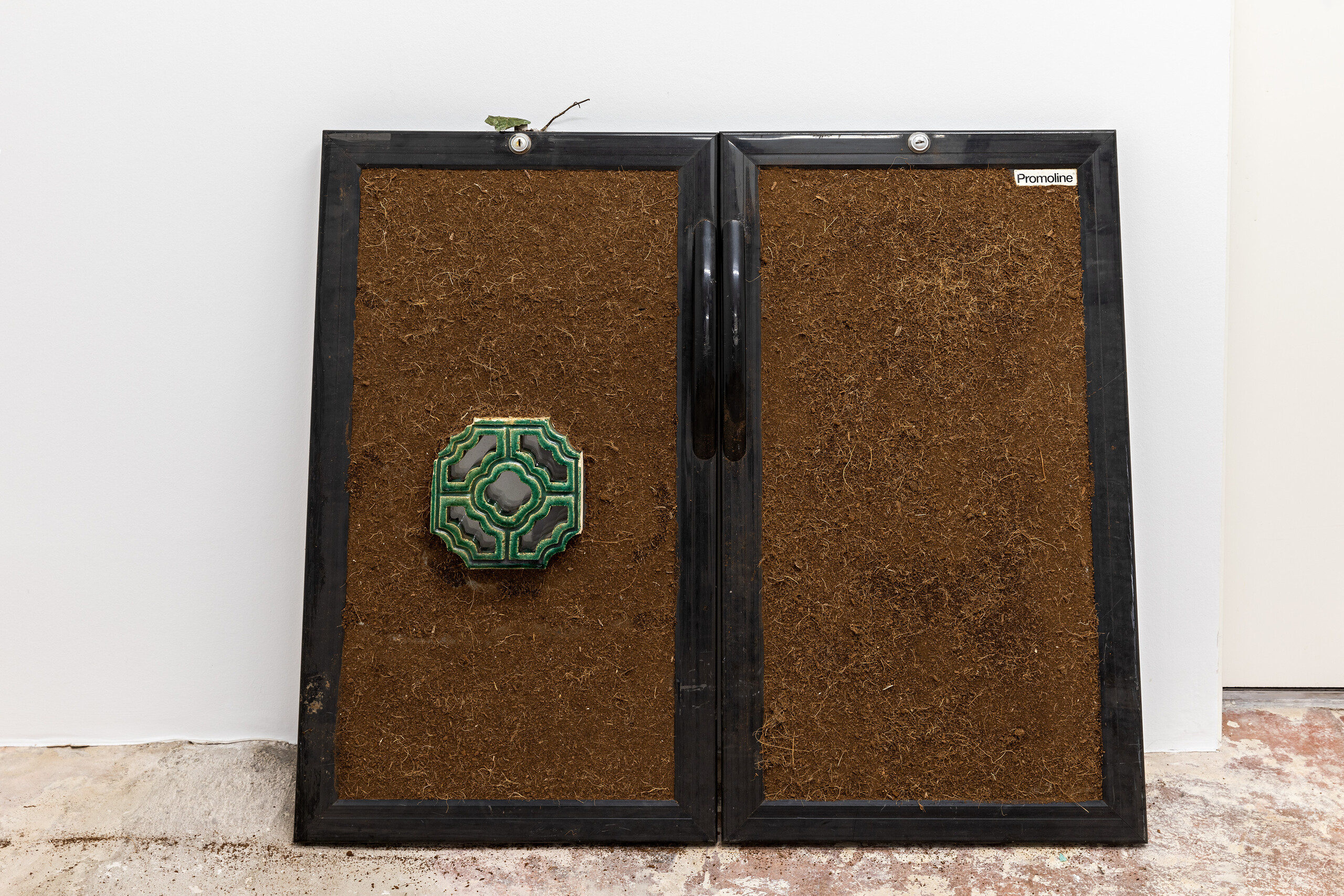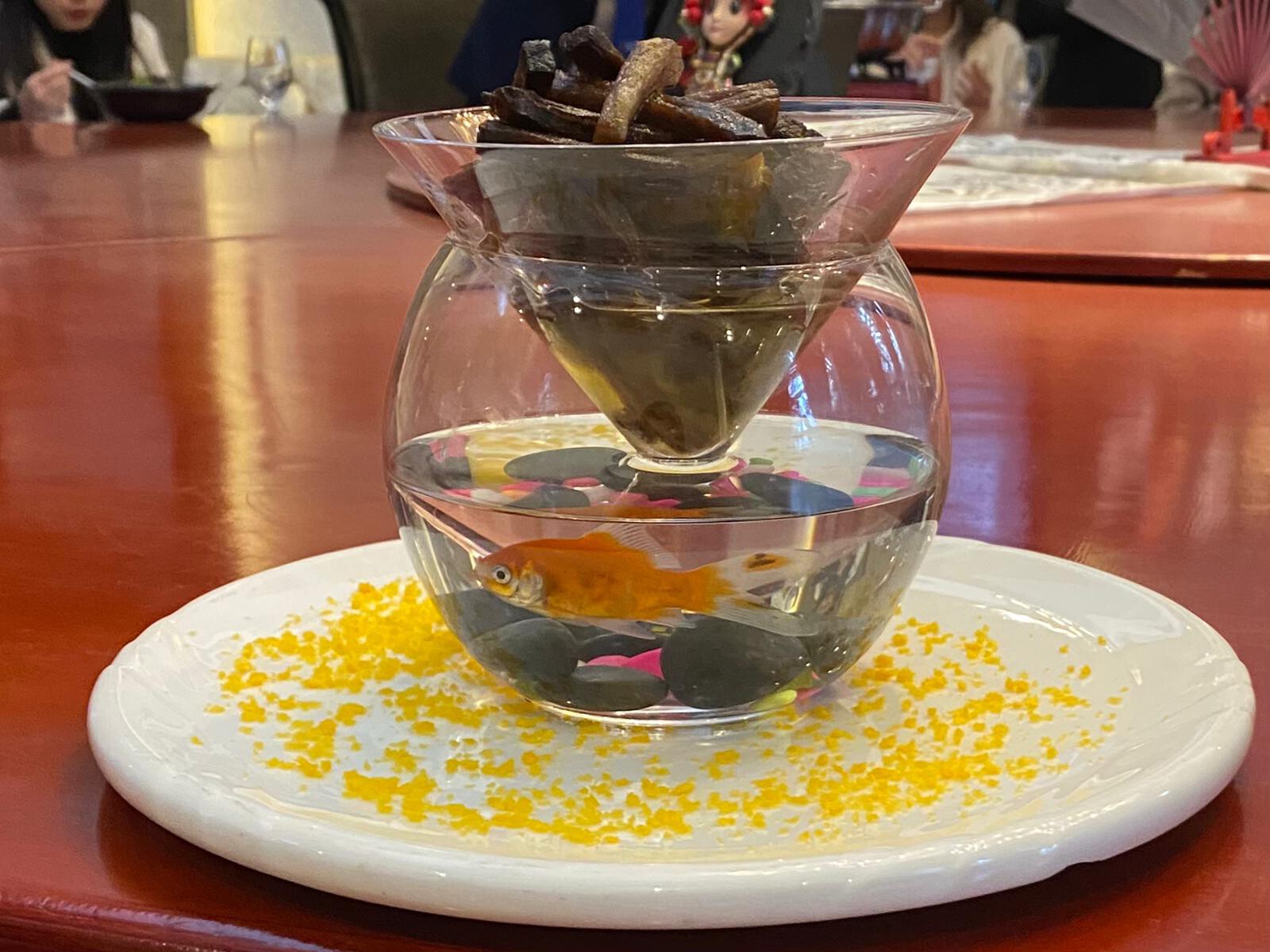Trade Gold for Stone is a site specific installation by Michelle Chang Qin that explores the notion of a transient duality. An aggregation of paired objects bears clue to the phenomenology of reflection: two sides of a mirror, the doubling of motifs, the unsalvageable divide between what is seen and what is asserted. Hybrid plants that merge wood, metal, cardboards, plaster and fragments of found objects erupt from the floor, mended, trimmed, and carefully maintained to form a coherent, dreamlike surrounding that resembles an aquarium, or a deserted garden washed over by flood, while the creases, cracks and exposed sutures in the junctures indicate ever-existing windows of rupture.
Qin reassembles objects and fragments of material found outside while wondering through cityscape to construct sites of inhabitancy, memory, literature and fantasy. The experience of growing up in a factory district in Chongqing, China where workers and families navigate within an architecture of communal working and living informs Qin’s on-going interest in the peripheral information scattered throughout sites of labor: a single cigarette butt on a pile of aluminum shreds, a milk carton wrapped in greasy cloth, each randomly composed yet unequivocally true. In resisting the named, classified and pronounced, Qin’s objects re-emerge in space as tributes to a great absence in manmade, structured environment, their layered presence opening up a portal for the subtle clues within to return after her intervention.
The temporal classification of the qualitative definition of an object, image or material is played out by Qin by floating crossing storylines and layers of meaning and by a modulation of narratives meanwhile shifting space. Wood becomes chair becomes plant becomes art…The chains of conditions of a material and its structural relationships unfold their collective physical presence in the gallery space. A deliberately aged material placed in juxtaposition with found objects of unknown history forms an ambiguous time difference. In the pauses and repetitions of rubbing, pounding, molding, transferring of grease, these objects and materials are transformed and become real sites of emotional construction and projection. In Trade Gold for Stone, Qin trades the hermetic, polished surface of industrialisation for a porous one, one that allows room for hesitation, communication and reverie. Certainly, despite all our eternal attempts to separate, contain, web and mend, categories always leak. In silence, in time.
